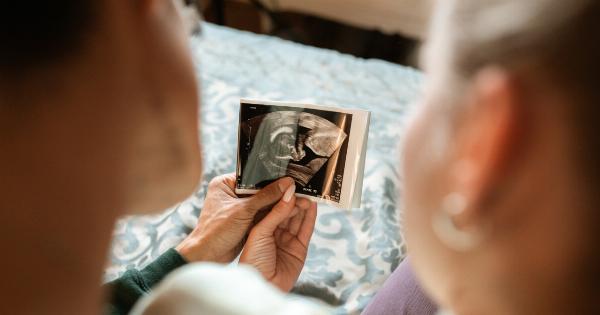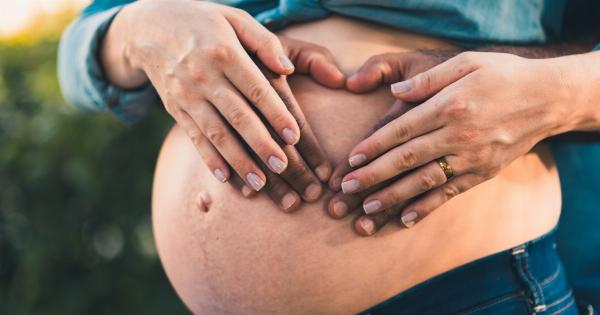As soon as a woman starts to notice changes in her body, she might begin to suspect or wonder if she is pregnant. While missing a period is a common sign, there are many other symptoms that can indicate a woman has conceived.
Learning about the early signs of pregnancy can help women make informed decisions, seek medical attention, and prepare for the arrival of a new baby.
1. Implantation Bleeding
One of the earliest signs of pregnancy is implantation bleeding. This occurs when the fertilized egg implants itself into the uterine wall, which can cause light spotting or bleeding.
It often happens around the time a woman would expect her period, which can make it difficult to determine whether she is pregnant or experiencing a lighter than usual menstrual cycle.
2. Fatigue
During the earliest stages of pregnancy, women may feel extremely fatigued and tired. This is due to the increased levels of progesterone in the body, which can cause drowsiness and a feeling of being constantly worn down.
Women may also experience trouble sleeping or require more sleep than usual.
3. Nausea and Vomiting
Commonly referred to as morning sickness, nausea and vomiting are two of the most well-known symptoms of pregnancy. However, it’s important to note that these symptoms can occur at any time of day – not just in the morning.
While some women only experience mild nausea, others may suffer from severe vomiting that requires medical attention.
4. Tender Breasts
Another common early sign of pregnancy is breast tenderness or soreness. This can be one of the first changes women notice in their bodies, and it’s due to the increased levels of estrogen and progesterone.
The breasts may feel heavier or fuller, and the nipples may be more sensitive or painful than usual.
5. Cramping
During the early stages of pregnancy, women may experience cramping that is similar to menstrual cramps. However, this type of cramping is usually milder and shorter in duration.
Some women may also feel a stretching or pulling sensation in their lower abdomen as the uterus begins to expand to accommodate the growing embryo.
6. Food Cravings and Aversions
Many women report experiencing food cravings or aversions during early pregnancy. This is thought to be caused by the hormonal changes in the body, which can alter the way food tastes and smells.
Some women may crave foods they never liked before, while others may be repulsed by their favorite foods.
7. Mood Swings
As hormone levels fluctuate during early pregnancy, it’s common for women to experience mood swings. They may feel irritable, emotional, or easily upset.
These mood changes can be difficult to deal with, but they are a normal part of the pregnancy journey.
8. Increased Urination
During early pregnancy, women may find they need to urinate more frequently than usual. This is because the growing uterus puts pressure on the bladder, which can cause the need to urinate more often.
Some women may also experience a burning or stinging sensation while urinating, which could be a sign of a urinary tract infection.
9. Dizziness and Faintness
Due to changes in blood pressure and circulation, some women may experience dizziness or faintness during early pregnancy. This can be especially concerning if it happens suddenly or frequently, as it could be a sign of a more serious condition.
10. Missed Period
Perhaps the most well-known sign of pregnancy is a missed period. This occurs when the hormones that control menstruation are altered due to pregnancy.
While some women may experience light spotting or bleeding during early pregnancy, a missed period is usually the most obvious and reliable sign that a woman has conceived.
If you suspect you may be pregnant, it’s important to seek medical attention as soon as possible. A healthcare provider can confirm a pregnancy and provide valuable information and resources to support a healthy pregnancy.
By understanding the early signs of pregnancy, women can take the steps necessary to ensure a safe and successful pregnancy journey.




























